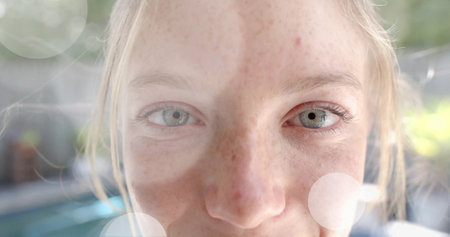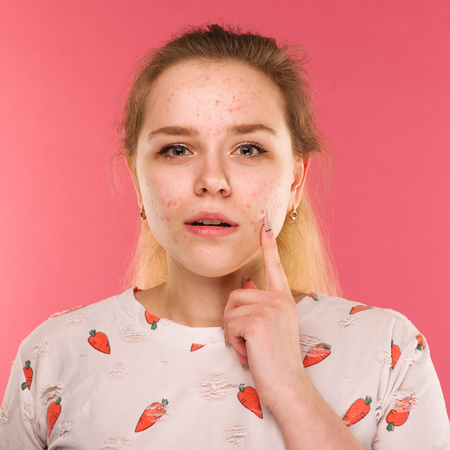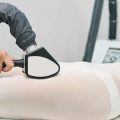Understanding Rosacea in the UK Context
Rosacea is a chronic inflammatory skin condition that affects millions of people worldwide, and the UK is no exception. Characterised by facial redness, visible blood vessels, and sometimes acne-like bumps, rosacea can have a significant impact on both physical appearance and emotional wellbeing. In the United Kingdom, it is estimated that around 1 in 10 people may experience some form of rosacea during their lifetime, making it an important public health consideration. The prevalence appears higher among individuals with fair skin, particularly those of Celtic or Northern European descent, which reflects the genetic makeup of much of the UK population. Environmental factors also play a distinct role in the UK context; for example, exposure to cold winds, fluctuating temperatures, and high levels of humidity often exacerbate symptoms. Additionally, lifestyle elements such as diet, alcohol consumption—especially red wine—and stress are commonly reported triggers among British sufferers. Understanding these unique features and risk factors is crucial for developing effective awareness campaigns and support networks tailored to the UK’s diverse communities.
Common Triggers and Symptom Management
Living with rosacea in the UK presents its own unique set of challenges, particularly due to the variable climate, cultural dietary preferences, and daily routines. Understanding typical British triggers and learning how to manage them can make a significant difference for those affected.
Typical UK-Based Triggers
| Trigger Type | Examples Specific to the UK | Impact on Rosacea |
|---|---|---|
| Weather | Cold winds, sudden temperature changes, dampness, low sunlight during winter months | Can cause flare-ups due to skin sensitivity and vascular reactions |
| Diet | Hot drinks (tea), spicy foods (curry), alcohol (especially gin & tonic or beer) | May lead to facial flushing and increased redness |
| Lifestyle | Commuting in crowded public transport, stress from busy city life, exposure to pollution in urban areas | Triggers inflammation and exacerbates symptoms |
Practical Tips for Managing Flare-Ups
- Dress Appropriately: Use scarves or face coverings during windy or cold weather to protect your skin. Layer clothing to avoid sudden overheating indoors.
- Mind Your Diet: Allow hot drinks like tea to cool slightly before drinking; opt for milder versions of spicy dishes. Monitor alcohol intake, noting which types trigger reactions.
- Skincare Choices: Choose gentle, fragrance-free products suitable for sensitive skin. Apply SPF daily—even on cloudy days common in the UK—to shield against UV exposure.
- Stress Reduction: Incorporate relaxation techniques such as mindfulness or yoga. Make time for regular breaks if you work in fast-paced environments.
- Avoid Overheating: Open windows on public transport when possible, and avoid sitting close to heaters. Carry a small handheld fan for comfort during warm spells or crowded spaces.
- Track Your Triggers: Keep a simple diary noting weather conditions, food/drink intake, and activities to identify personal patterns.
When to Seek Support?
If your symptoms worsen despite self-care efforts, consider reaching out to a local GP or a specialist nurse experienced in dermatology. Many NHS clinics offer tailored advice for managing rosacea within the UK’s healthcare system.

3. NHS Guidance and Medical Support
For individuals living with rosacea in the UK, the National Health Service (NHS) offers clear pathways for diagnosis and ongoing management. The first step for anyone concerned about symptoms—such as persistent facial redness, visible blood vessels, or recurrent spots—is to book an appointment with their local GP (General Practitioner). GPs are trained to identify rosacea and can offer initial advice on lifestyle adaptations and trigger avoidance. If needed, your GP may prescribe topical or oral medications specifically tailored to your symptoms.
Should your condition be more complex or resistant to standard treatments, you may be referred to an NHS dermatologist. Dermatologists can provide a more thorough assessment and access to advanced therapies, including laser treatment or specialist skincare advice. While waiting times can vary across regions, it is important to keep your GP updated on any changes in your condition, as this can help prioritise your referral.
The NHS also provides a range of online resources that offer guidance on managing rosacea day-to-day. These include trusted information on treatment options, self-care strategies, and advice on mental wellbeing. Patients are encouraged to make use of these materials—available via the official NHS website—as they navigate their journey with rosacea. Remember: seeking help early and maintaining communication with your healthcare team are vital steps in managing this long-term skin condition effectively within the UK’s public health system.
4. UK-Based Support Networks and Charities
Living with rosacea can be challenging, but there is a growing network of support within the UK to help individuals manage the physical and emotional aspects of this condition. Local organisations and charities play a crucial role in providing guidance, advocacy, and a sense of community for people affected by rosacea. Below, we highlight some key resources available across the country.
Major UK Charities and Organisations
| Organisation | Support Offered | Website/Contact |
|---|---|---|
| The British Skin Foundation | Information, research funding, awareness campaigns, online patient resources | britishskinfoundation.org.uk |
| The National Rosacea Society (UK branch) | Patient education, helpline, peer stories, advocacy | rosacea.org.uk |
| Changing Faces | Emotional support, counselling, advice on living with visible skin conditions | changingfaces.org.uk |
| Skin Support (by BAD) | Peer forums, practical tips, signposting to local dermatology clinics | skinsupport.org.uk |
Local Rosacea Support Groups
Several regional groups offer in-person or online meetups for those seeking camaraderie and shared experiences. These groups are often found via social media platforms like Facebook or through local NHS Trusts. Many participants report that sharing their journey and tips with others significantly eases the burden of managing rosacea.
How to Access Community Support?
- NHS Dermatology Clinics: Many clinics have links to local support networks and may refer patients to relevant groups.
- Online Forums: British-based forums such as TalkHealth Partnership feature dedicated rosacea sections where members exchange advice on triggers, treatments, and coping strategies.
- Mental Health Charities: Organisations such as Mind offer counselling services tailored for those dealing with self-esteem or anxiety issues related to skin conditions.
A Note on Advocacy Efforts
In addition to direct support, several UK charities actively campaign for increased public understanding of rosacea. They work with healthcare professionals to promote early diagnosis and better access to treatments while striving to reduce stigma associated with visible skin differences.
5. Raising Awareness and Advocacy Initiatives
Raising public awareness about rosacea is crucial to improving the quality of life for those affected and reducing stigma across the UK. Several current campaigns and events, both nationally and locally, aim to educate the public, healthcare professionals, and policymakers about the realities of living with rosacea. Notably, Rosacea Awareness Month, held every April, sees charities and support groups like the British Skin Foundation and Changing Faces host educational workshops, online webinars, and social media drives to encourage open conversations around skin health.
Current Campaigns Making a Difference
Initiatives such as #RosaceaStories on social platforms invite individuals to share their experiences, fostering empathy and understanding. Additionally, organisations often collaborate with NHS trusts to distribute informational leaflets in GP surgeries and pharmacies, ensuring that accurate guidance reaches those newly diagnosed. These efforts are supported by targeted lobbying activities aimed at improving access to dermatological care within the NHS system.
Events Across the UK
From London-based panel discussions featuring dermatologists, to community meetups in cities like Manchester and Glasgow, there are regular opportunities for people to connect, learn, and advocate. Virtual events have also become increasingly popular post-pandemic, making it easier for individuals in rural areas to participate without travelling long distances.
How You Can Get Involved
There are many ways for individuals to contribute. Sharing personal stories online using campaign hashtags helps normalise rosacea in public discourse. Volunteering with patient advocacy groups or participating in fundraising walks can directly support research and outreach. Writing to local MPs about the need for better skin care services or distributing campaign materials in your community are impactful steps anyone can take. By joining these collective efforts, everyone can help foster a more supportive environment for people living with rosacea throughout the UK.
6. Helpful Resources and Further Reading
For those living with rosacea in the UK, access to reliable information and supportive networks can make a significant difference in managing symptoms and feeling less isolated. Below is a carefully curated selection of resources tailored to the British context—spanning official websites, helplines, downloadable leaflets, and online communities.
UK-Based Organisations and Websites
- The British Association of Dermatologists (BAD): bad.org.uk – Offers comprehensive patient information on rosacea, including up-to-date treatment guidelines and downloadable leaflets.
- NHS Inform: nhs.uk/conditions/rosacea – The NHS’s official guidance covers symptoms, triggers, diagnosis, and available treatments across England, Scotland, Wales, and Northern Ireland.
Helplines and Direct Support
- Skin Support Helpline (British Skin Foundation): 0800 448 0828 – A free phone service offering confidential advice and signposting for those affected by skin conditions.
- Changing Faces Skin Camouflage Service: changingfaces.org.uk – For individuals seeking practical solutions to manage visible symptoms.
Informational Leaflets & Publications
- B.A.D. Rosacea Patient Information Leaflet: Downloadable from the BAD website, this leaflet covers essential facts about living with rosacea in plain English.
- NHS Digital Resources: Printable factsheets and guides are available via the NHS website for patients and carers alike.
Online Forums & Peer Support Networks
- TalkHealth Partnership Rosacea Forum: talkhealthpartnership.com/forum – A moderated discussion board where UK residents share experiences, tips, and encouragement.
- Rosacea Support UK (Facebook Group): An active private group providing peer support tailored to the challenges faced within the UK healthcare system.
Further Reading & Advocacy Updates
For ongoing education about new treatments or advocacy campaigns in Britain, consider subscribing to newsletters from the British Association of Dermatologists or following relevant charities such as the British Skin Foundation on social media. Staying informed empowers you to make choices that suit your lifestyle and ensures your voice is heard in national awareness initiatives.


